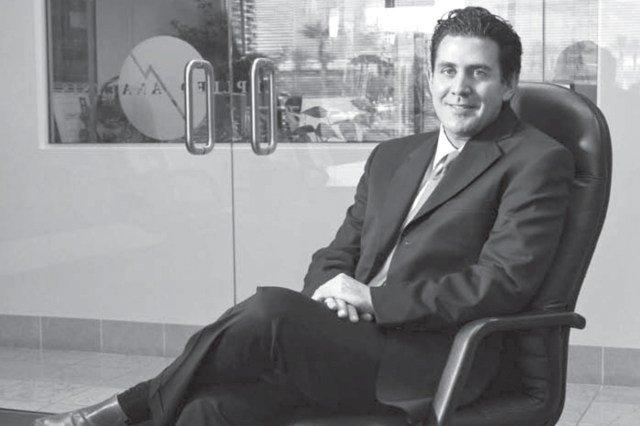
There is a lot of excitement in southern Nevada about what professional sports means for our community. The Vegas Golden Knights will take the ice in their first regular season home game on October 10; and, with a little luck, the Raiders will begin construction on their new $1.8 billion home a month or two later.
The excitement is warranted. There are only 30 cities with NHL franchises, and 30 with NFL franchises. The number of cities with both is, of course, a smaller number. This is not only a rite of passage for Las Vegas on its way to becoming a world-class sports city, but, for countless sports fans, it is a dream come true.
All this having been said, the opportunities created by sports as entertainment pale in comparison to those created by sports as a business. Beyond game day, beyond fight night, Las Vegas is well positioned to become a key market, if not the epicenter, of the nation’s sports industry. In fact, we are already well on our way to becoming just that.
Las Vegas is rarely mentioned among the nation’s premier “sports cities,” even though southern Nevada plays host to more professional and championship events than almost anywhere in the country. The short list includes the National Finals Rodeo, NASCAR, NBA Summer League, UFC and boxing bouts, NCAA basketball tournaments, the Las Vegas Bowl, Rugby Sevens, international soccer friendlies, the Las Vegas Marathon, and the United Soccer League, as well as bowling, bull riding, curling and equestrian championships. Add to the mix at least two professional sports franchises, increasingly competitive collegiate sports, improved and expanded minor league teams and the opportunity to host events like the World Cup and Super Bowl in a state-of-the-art, 65,000-seat stadium, and Las Vegas rivals any sports city in America.
Las Vegas is as important to the success of these events and franchises as they are to the success of Las Vegas. They bring a quality product; we bring 2.2 million residents, 43 million visitors, 150,000 hotel rooms, the country’s second-busiest origination and destination airport and 290,000 tourism-industry workers dedicated to the proposition that the party’s not over until the last person goes home.
Sports is already a multi-billion-dollar industry in southern Nevada; but it has the potential to be so much more. While the expanding array of sporting events provides a significant boost to our region’s core tourism industry, it also generates new opportunities to extend the economic impact of sports off the field. The growing number of teams, players and professional staffs who support them, combined with Nevada’s business-friendly environment, presents ample opportunity for developing businesses and industries centered on sports and the athletes who compete in them.
Case in point: UFC.
Few could have imagined what the UFC would become when Frank Fertitta III and Lorenzo Fertitta purchased the organization in 2001. But in the more than 15 years since, UFC has grown from a niche combat sport into one of the most valuable and visible sports organizations in the world. There is no argument that UFC events have had a tremendous impact on southern Nevada. Las Vegas has hosted more than 100 UFC fights, easily more than any other city. International Fight Week, the UFC’s annual premier event, by itself generates an economic impact that easily exceeds $200 million.
UFC further grounded its presence in southern Nevada with the recent opening of its company headquarters in the southwest valley. The multi-million dollar 184,000-square-foot facility not only serves as the global headquarters for the organization, it is also home to the new UFC Performance Institute. Modeled after the top training facilities in the world , the 30,000-square-foot tech-laden institute was designed to provide UFC fighters with the best resources and expertise in nutrition, training, rehabilitation and other areas of human performance.
UFC has become a model for developing relationships and economic impacts both inside and outside the Octagon, including partnerships with nationally recognized medical groups such as New York’s Hospital for Special Surgery and Cleveland Clinic Lou Ruvo Center for Brain Health. With a focus on the development of innovative training methods, techniques and equipment to optimize athletic performance at its core, the Performance Institute is already becoming a hub for maximizing performance for athletes from any sport. In fact, UFC executives encourage athletes from other professional sports to use the Performance Institute and to cross train with UFC fighters.
Simply put, that’s just good business.
Critical mass, the ability to leverage existing economic assets and accretive benefits of collaboration are the building blocks of Nevada’s economic development strategy. All are clearly present here, and we would be remiss if we fail to exploit the unique opportunity to expand our economy while enhancing our community’s quality of life.


